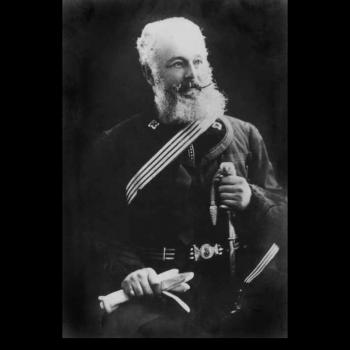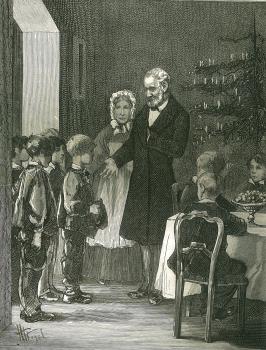6th June 2017
In an interesting article in this week’s Academy, says the Pall Mall Gazette of the 21st inst. (1876), M Jules Andrieu discloses certain curious discoveries made by him as to Victor Hugo’s method of procedure in composing his last romance. From this it would appear that even a great genius, and one also who has of late affected encyclopaedic learning, may be reduced to the necessity of ‘cramming’ for the purposes of a particular work; and that, like others who cram, he is not over-fastidious either as to the field of his investigations or to the accuracy of their results. [By Dinah Bott]
6th June 2017
Marc Anthony Bazille Corbin of La Porte was Hugo’s doctor for several years, following the departure from the island of Dr Emile Allix. This is part of the Victor Hugo and Guernsey project. [By G Stevens Cox and D Bott]
6th June 2017
A defence of Victor Hugo and of free speech from the Daily News (founded as a radical newspaper in 1846 by Charles Dickens. Its editor in 1855 was William Weir, a socialist barrister whose increasing deafness led him to journalism.) 'The political exiles in Jersey, who signed the protest against the expulsion of the three gentlemen connected with the journal L’Homme, have in their turn been ordered to quit the island before the 2nd November. What crime have they committed? They have said in 1855 what Sir Charles Wood, the Duke of Newcastle, and Sir James Graham said in 1851, when they were cabinet ministers.'
22nd May 2017
Victor Hugo was not a Christian in the strict sense. He was a deist, profoundly religious in his way. This is part of The Victor Hugo and Guernsey project.
22nd May 2017
Throughout his life Hugo took an interest in crime and punishment, not least in Guernsey when he was writing Les Misérables. This is part of The Victor Hugo and Guernsey project.
21st April 2017
In the early 1860s Hugo completed and revised his novel Les Misérables, a work that he had started in the 1840s. As he wrote about Cosette, Eponine, Fantine, Gavroche, Javert… he could not help but observe the poor, the suffering, and the wretched all around him in Guernsey. He had an active compassion and tried to help. Part of the Victor Hugo and Guernsey project.
2nd December 2016
Two accounts of Victor Hugo's Christmas party for the poor children, from 1865, one from The Star, edited by John Talbot, and the other by E L Samuel, from the Daily Post. The illustration is an engraving (with suspiciously well-dressed children!) from Alfred Barbou's biography of Hugo, here in English translation, Victor Hugo and his time, London: Sampson Low, Marston, Searle, and Rivington, 1883; we also have the original French version in the Library. [D Bott]
9th March 2015
The Guernsey reaction to Victor Hugo's letters on the death penalty, 1854; an examination of newspapers and other resources in the Library.


